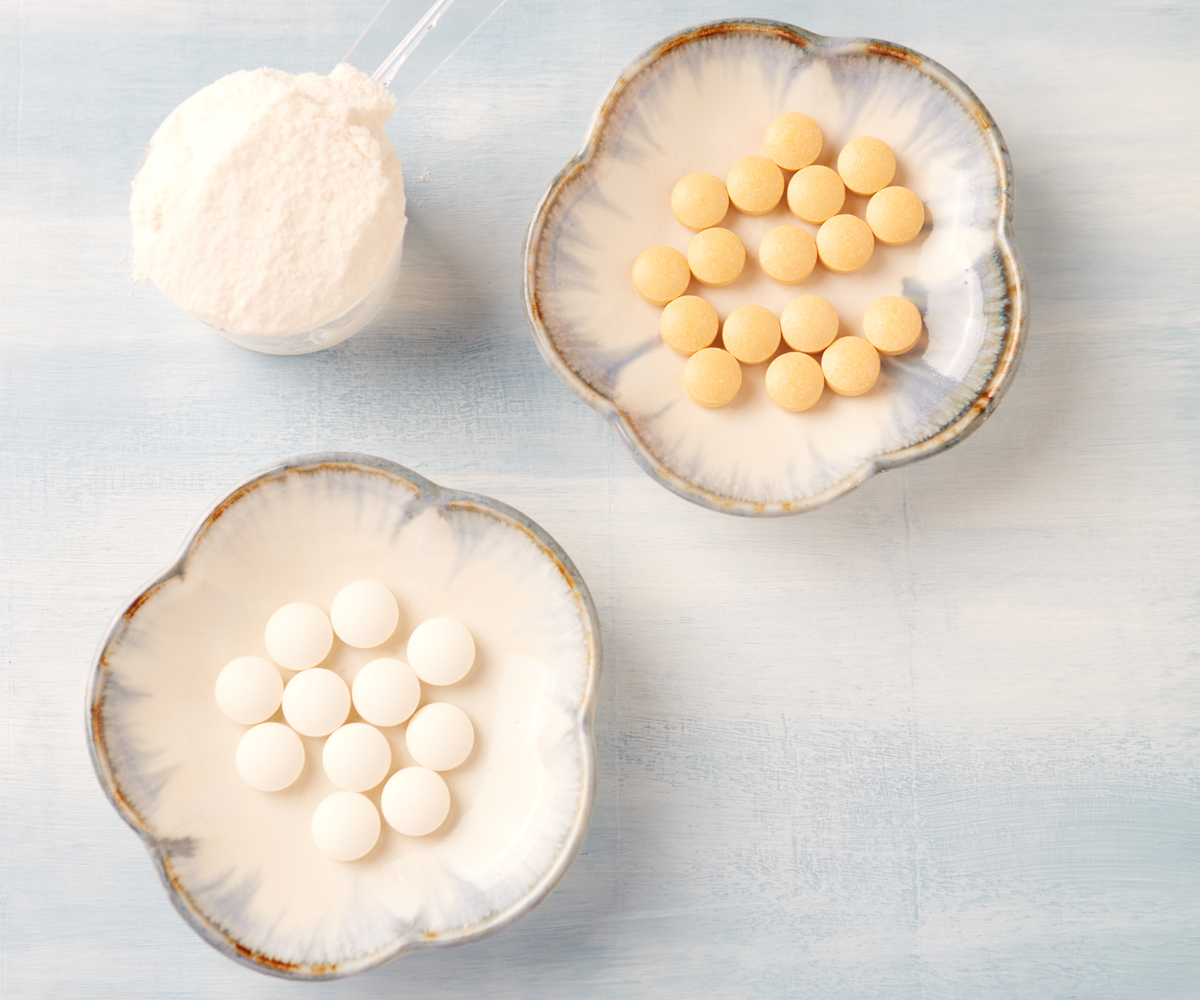While we haven’t quite got to the stage of popping pills as meal replacements, it has become incredibly normal to be taking supplements or powders as part of a health regime.
One product that has boomed in popularity is collagen, touted for its benefits for skin and joints, so we investigated how it works, where it comes from and what the evidence says.
Collagen is a type of protein found in bones, muscles, skin, ligaments and tendons that works to give structure to the body, as well as being responsible for multiple biological functions, such as strengthening bones and maintaining skin elasticity.
As we age, it is natural for our collagen production to decline. By the time we have reached the age of 60, a considerable decrease is normal, and women usually experience a dramatic reduction after menopause.
The human body naturally produces collagen from amino acids, which we can get from a diet that is rich in fruits, vegetables, lean proteins and healthy fats.
Making sure your diet is high in nutrients such as vitamin C, zinc and copper will also help to stimulate collagen production.
We can’t avoid the natural decline in collagen production, but some lifestyle factors will accelerate this process, such as excess sun exposure and smoking.

Our body’s collagen production naturally declines as we age but some lifestyle factors can accelerate the process. (Image: Getty)
Years ago, the most common form of commercial collagen used to be injectable fillers. Now, edible supplements can be easily purchased as tablets, capsules and powders.
In these forms, the collagen is hydrolysed, meaning that it has been broken down into peptides in order to be more easily absorbed and used by the body.
Most collagen powders can be used like protein powder and added to smoothies, coffee or food.
So does taking a supplement simply top up your body’s supply, causing immediately visible results? Not quite.
By taking a supplement, you are simply ingesting the amino acids or building blocks that your body requires to produce collagen on its own.
There are at least 16 different types of collagen, but Type 1, 2 and 3 are the most abundant. The majority of supplements contain Type 1 or 3, or a blend of both, and these are best if you are taking it for skin benefits.
For joint, cartilage and bone health, opt for a product that contains Type 2.
Collagen is generally bovine, porcine or marine, which are derived from the tissues of cows, pigs and fish, respectively.
Being an animal by-product, collagen products are not suitable for vegetarians or vegans, and you may want to take caution if you are allergic to shellfish or eggs.
As collagen plays a key role in strengthening the skin and providing support for all of our tissues, a decline in skin elasticity tends to follow a reduction in collagen production.
This is why as we grow older, our skin isn’t as plump and we are more prone to sagging and wrinkles.
The research is still in its infancy, but several studies from London and Germany thus far have shown that consuming collagen may indeed help to slow the ageing of your skin by reducing wrinkles and dryness.
In terms of claims that collagen supplements are helpful for the prevention of acne or other skin conditions, there isn’t enough supporting evidence yet.
 Getty Images
Getty Images



